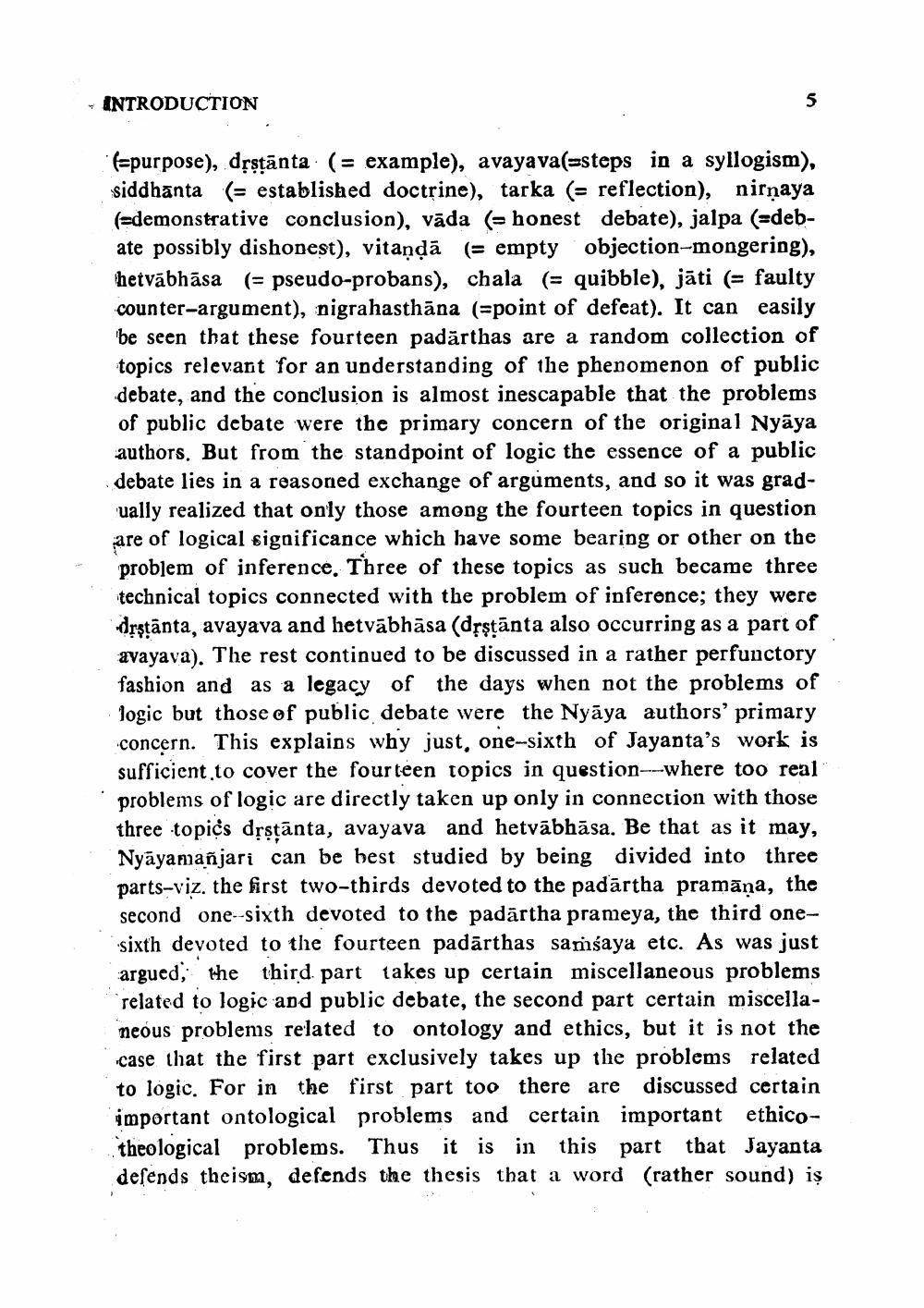________________
INTRODUCTION
(=purpose), dệsțānta (= example), avayava(=steps in a syllogism), siddhanta (= established doctrine), tarka (= reflection), nirņaya (=demonstrative conclusion), vāda (= honest debate), jalpa (=debate possibly dishonest), vitanda (= empty objection-mongering), hetvābhāsa (= pseudo-probans), chala (= quibble), jāti (= faulty counter-argument), nigrahasthāna (=point of defeat). It can easily be seen that these fourteen padārthas are a random collection of topics relevant for an understanding of the phenomenon of public debate, and the conclusion is almost inescapable that the problems of public debate were the primary concern of the original Nyāya authors. But from the standpoint of logic the essence of a public debate lies in a reasoned exchange of arguments, and so it was gradually realized that only those among the fourteen topics in question are of logical significance which have some bearing or other on the problem of inference. Three of these topics as such became three technical topics connected with the problem of inference; they were drstānta, avayava and hetvābhāsa (drstānta also occurring as a part of avayava). The rest continued to be discussed in a rather perfunctory fashion and as a legacy of the days when not the problems of . logic but those of public debate were the Nyāya authors' primary .concern. This explains why just, one-sixth of Jayanta's work is sufficient to cover the fourteen topics in question--where too real problems of logic are directly taken up only in connection with those three topics drstānta, avayava and hetvābhāsa. Be that as it may, Nyāyamañjari can be best studied by being divided into three parts-viz. the first two-thirds devoted to the padārtha pramāna, the second one--sixth devoted to the padārtha prameya, the third onesixth devoted to the fourteen padārthas samsaya etc. As was just argued, the third part takes up certain miscellaneous problems related to logic and public debate, the second part certain miscellaneous problems related to ontology and ethics, but it is not the case that the first part exclusively takes up the problems related to logic. For in the first part too there are discussed certain important ontological problems and certain important ethicotheological problems. Thus it is in this part that Jayanta defends theism, defends the thesis that a word (rather sound) is




